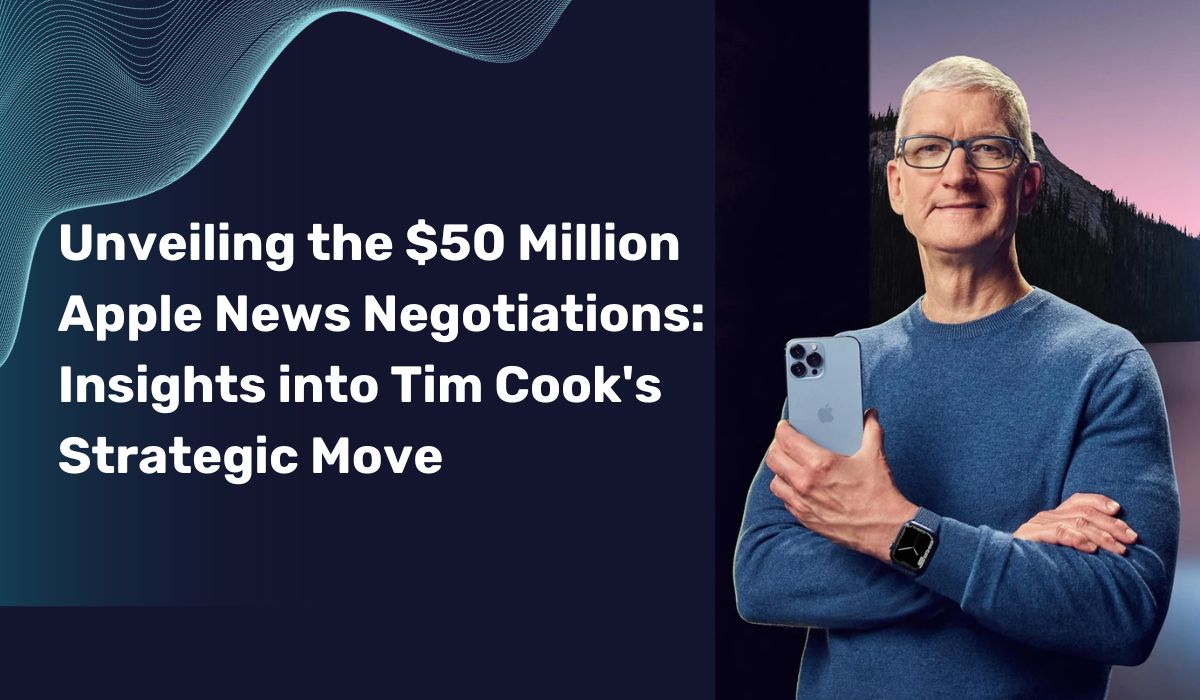
In a strategic move to advance its generative artificial intelligence (AI) capabilities, Apple, headquartered in Cupertino, is currently in talks with major news giants. Reports from The New York Times reveal that the iPhone maker is actively seeking approval to utilize content from leading publishers in the development of its AI systems. Apple has proposed lucrative deals, with a staggering minimum value of $50 million, aimed at licensing the extensive archives of news articles.The companies approached by Apple include prominent names such as NBC News, Conde Nast, IAC (owner of People), The Daily Beast, and Better Homes and Gardens. This marks Apple's initial efforts to catch up with competitors like Microsoft, Google, OpenAI, and Meta, who have already introduced AI-developed products, including chatbots. Despite having the virtual assistant Siri, Apple's foray into generative AI has been relatively subdued since its inception.
Apple CEO Tim Cook acknowledged the company's commitment to advancing AI technology in a recent statement, though specific details were not disclosed. Initial responses from publishers contacted by Apple indicate some reservations. Concerns revolve around the broad licensing terms proposed by Apple and the vague application of generative AI in the news industry. Despite skepticism, some news executives express optimism, foreseeing potential meaningful partnerships.Apple's pitch, encompassing broad licensing of archives and unclear AI implementation plans, has left publishers cautious. The New York Times report highlights the lukewarm response from publishers who find Apple's terms too expansive. The tech giant's preliminary discussions focused on acquiring licenses for vast archives of published content, raising questions about the specific application of generative AI in the news industry.
While Apple's rivals have faced legal challenges for unauthorized use of web content, the tech firm's commitment to privacy has made it reluctant to gather information from the internet. Apple's acquisition of Topsy in 2013 emphasized its stance on data collection, as it instructed the social analytics start-up to cease collecting information from Twitter (then known as X), citing violations of its customer data collection policies.Apple's history of prioritizing user privacy influences its approach to data gathering for generative AI products. The company's executives have engaged in internal debates on how to accumulate the necessary data while upholding privacy standards. Despite reservations from publishers regarding licensing terms, some news executives view Apple's interest in AI development as a potential avenue for meaningful collaboration. As the negotiations unfold, the tech industry awaits further details on Apple's vision for incorporating generative AI into the realm of news.